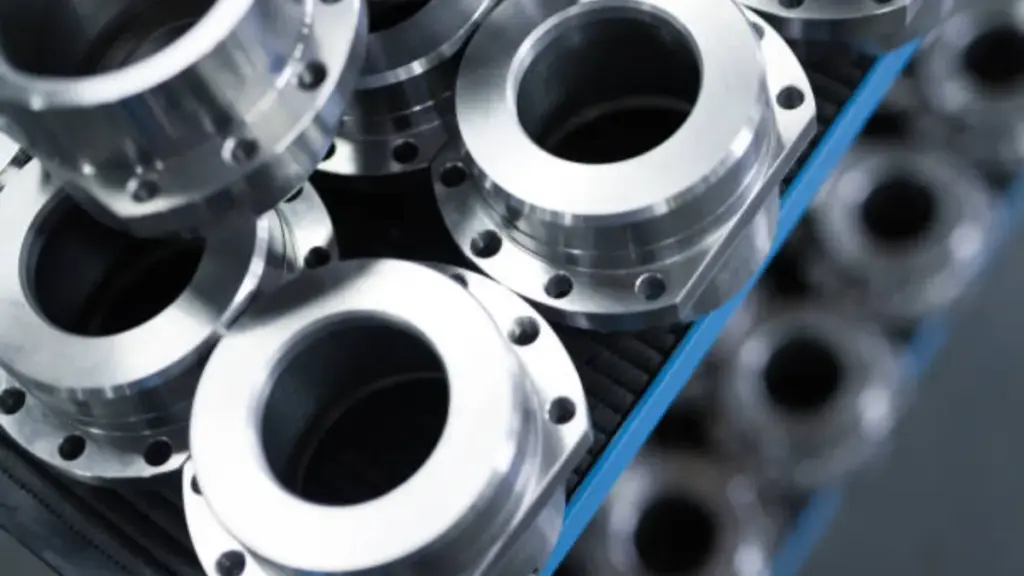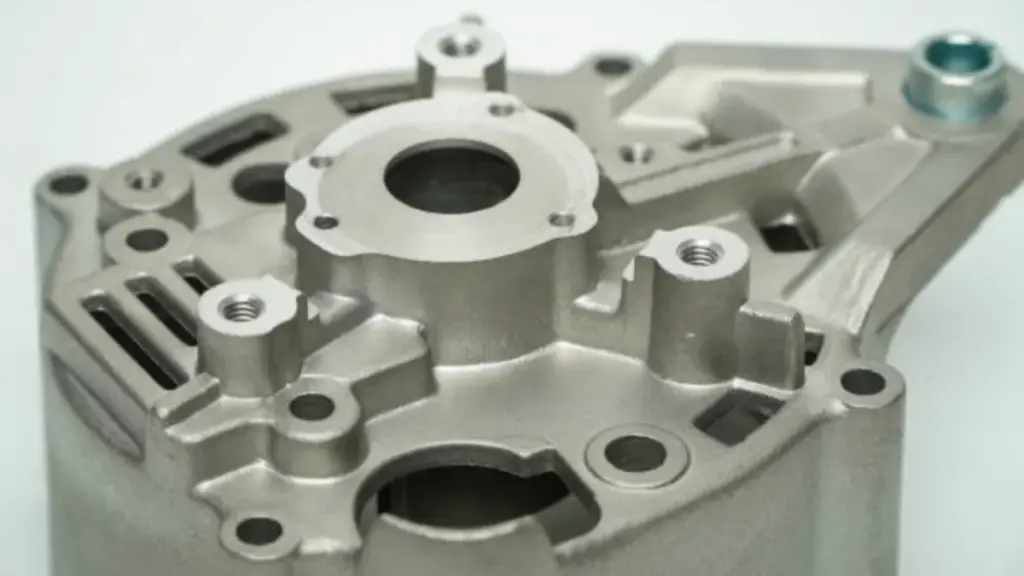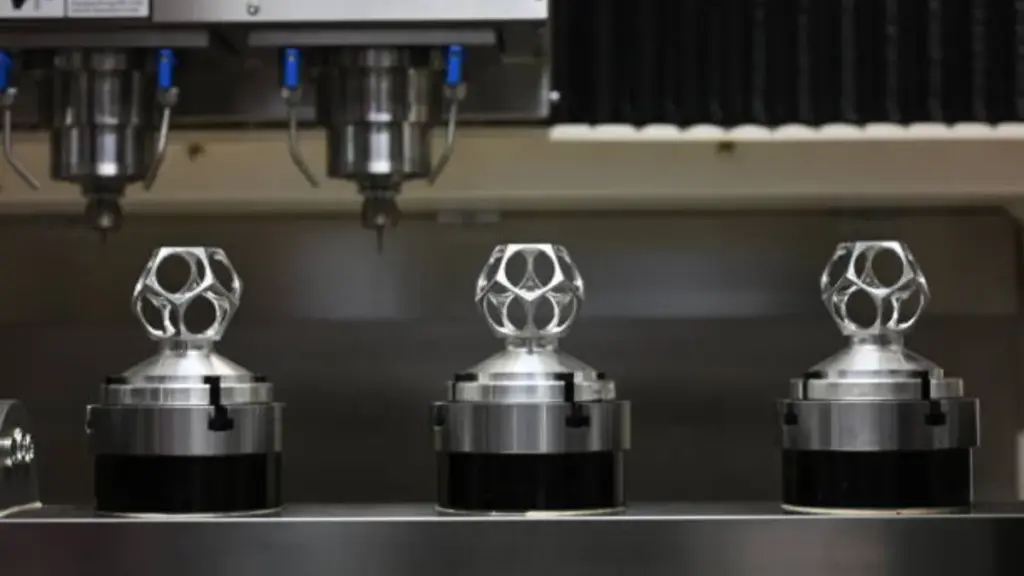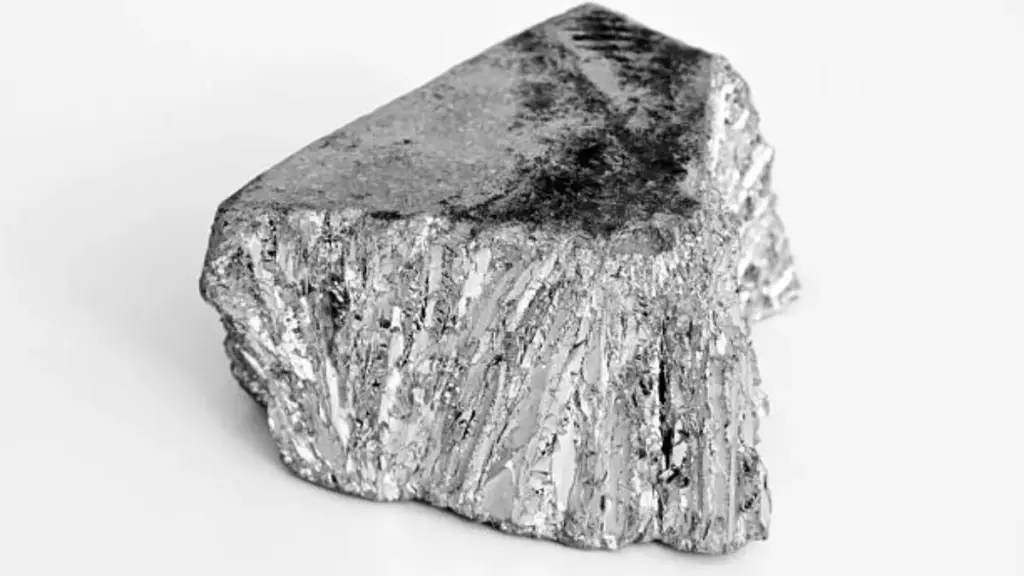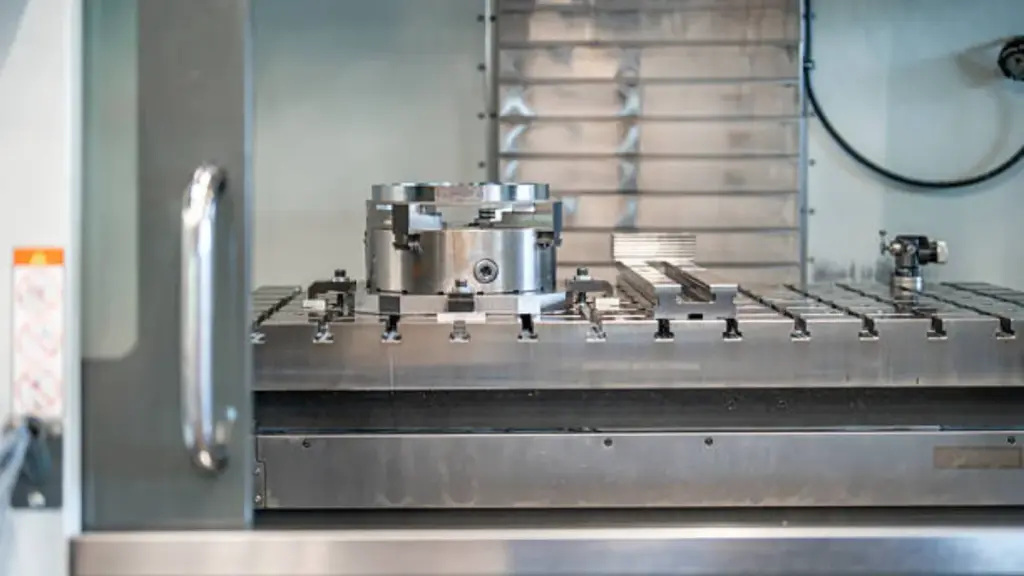उपज शक्ति इंजीनियरिंग में एक मौलिक संपत्ति है, खासकर जब यह एल्यूमीनियम मिश्र धातुओं की बहुमुखी प्रतिभा की बात आती है. ये मिश्र धातु अपने असाधारण गुणों के कारण विभिन्न उद्योगों में महत्वपूर्ण भूमिका निभाते हैं. चलो उपज की ताकत के महत्व को कम करते हैं और इंजीनियरिंग में एल्यूमीनियम मिश्र धातुओं के महत्व का पता लगाते हैं.
उपज की ताकत क्या है?
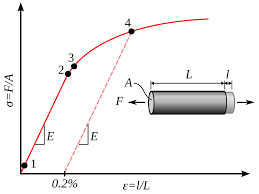
उपज की ताकत अधिकतम तनाव की माप है जो एक सामग्री स्थायी विरूपण के बिना झेल सकती है. यह सामग्री की संरचनात्मक अखंडता और प्रदर्शन का निर्धारण करने के लिए एक महत्वपूर्ण पैरामीटर है. एल्यूमीनियम मिश्र धातुओं के उपज बिंदु का मूल्यांकन मानकीकृत परीक्षणों के माध्यम से किया जाता है, विभिन्न परिस्थितियों में उनके यांत्रिक व्यवहार में आवश्यक अंतर्दृष्टि प्रदान करना.
एल्यूमीनियम मिश्र और उनके अनुप्रयोग
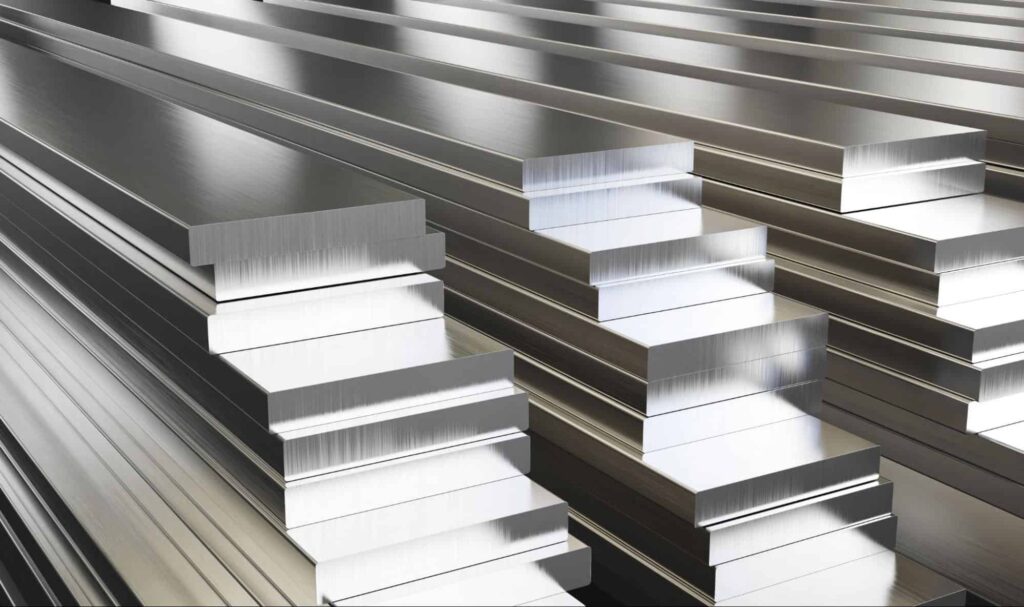
एल्यूमीनियम मिश्र धातु उनके हल्के स्वभाव के लिए बेशकीमती हैं, संक्षारण प्रतिरोध, और प्रभावशाली शक्ति-से-वजन अनुपात. वे विविध उद्योगों में व्यापक अनुप्रयोग पाते हैं, एयरोस्पेस सहित, ऑटोमोटिव, निर्माण, और उपभोक्ता इलेक्ट्रॉनिक्स. विमान के घटकों से हर दिन घरेलू सामान, एल्यूमीनियम मिश्र धातु आधुनिक इंजीनियरिंग में अपरिहार्य हैं.
6061 एल्यूमीनियम उपज शक्ति
के गुण 6061 अल्युमीनियम
6061 अल्युमीनियम अपने उत्कृष्ट यांत्रिक गुणों के लिए प्रसिद्ध है, लगभग की उपज ताकत सहित 276 एमपीए (40,000 साई). यह उल्लेखनीय वेल्डेबिलिटी का दावा करता है, संक्षारण प्रतिरोध, और मशीनीकरण, इसे विभिन्न अनुप्रयोगों के लिए एक लोकप्रिय विकल्प बनाना.
आवेदन और फायदे 6061 अल्युमीनियम
यह बहुमुखी मिश्र धातु व्यापक रूप से संरचनात्मक घटकों में उपयोग किया जाता है, फ़्रेम, और समुद्री अनुप्रयोग. इसकी असाधारण ताकत, अपने हल्के स्वभाव के साथ युग्मित, उच्च शक्ति और स्थायित्व की आवश्यकता वाले भागों के लिए यह आदर्श बनाता है.
7075 एल्यूमीनियम उपज शक्ति
के गुण 7075 अल्युमीनियम
7075 एल्यूमीनियम एक उच्च शक्ति वाला मिश्र धातु है जिसमें लगभग प्रभावशाली उपज ताकत है 503 एमपीए (73,000 साई). जबकि यह असाधारण यांत्रिक गुण प्रदान करता है, इसकी तुलना में कम संक्षारण प्रतिरोधी है 6061 अल्युमीनियम.
आवेदन और फायदे 7075 अल्युमीनियम
मुख्य रूप से एयरोस्पेस और सैन्य अनुप्रयोगों में उपयोग किया जाता है, 7075 एल्यूमीनियम अपने उत्कृष्ट शक्ति-से-वजन अनुपात के लिए इष्ट है. यह आमतौर पर विमान घटकों में नियोजित होता है, मिसाइल भाग, और उच्च-तनाव संरचनात्मक तत्व जहां शक्ति सर्वोपरि है.
2024 एल्यूमीनियम उपज शक्ति
के गुण 2024 अल्युमीनियम
2024 एल्यूमीनियम को इसकी उत्कृष्ट शक्ति और कठोरता के लिए मान्यता प्राप्त है, आसपास की उपज की ताकत का दावा करना 324 एमपीए (47,000 साई). यह अच्छी मशीनबिलिटी और थकान प्रतिरोध को प्रदर्शित करता है, यह विभिन्न इंजीनियरिंग अनुप्रयोगों के लिए उपयुक्त है.
आवेदन और फायदे 2024 अल्युमीनियम
व्यापक रूप से एयरोस्पेस में उपयोग किया जाता है, ऑटोमोटिव, और संरचनात्मक अनुप्रयोग, 2024 एल्यूमीनियम को इसकी उच्च शक्ति और थकान प्रतिरोध के लिए पसंद किया जाता है. यह विमान संरचनाओं में आवेदन पाता है, विंग स्पार्स, और उच्च प्रदर्शन वाले खेल उपकरण.
6063 एल्यूमीनियम उपज शक्ति
के गुण 6063 अल्युमीनियम
6063 एल्यूमीनियम लगभग उपज ताकत प्रदान करता है 241 एमपीए (35,000 साई) उत्कृष्ट संक्षारण प्रतिरोध और फॉर्मेबिलिटी के साथ. यह इसकी चिकनी सतह खत्म के लिए जाना जाता है और अक्सर वास्तुशिल्प और सजावटी अनुप्रयोगों में उपयोग किया जाता है.
आवेदन और फायदे 6063 अल्युमीनियम
यह मिश्र धातु आमतौर पर वास्तु उद्देश्यों के लिए extruded आकृतियों में नियोजित है, खिड़की की फ्रेम, दरवाज़ों के फ़्रेम्स, और विभिन्न संरचनात्मक घटक. इसकी ताकत का संयोजन, प्रपत्र, और संक्षारण प्रतिरोध इसे निर्माण और डिजाइन में एक बहुमुखी विकल्प बनाता है.
5052 एल्यूमीनियम उपज शक्ति
के गुण 5052 अल्युमीनियम
5052 एल्यूमीनियम चारों ओर की उपज ताकत का दावा करता है 193 एमपीए (28,000 साई) और इसके उत्कृष्ट संक्षारण प्रतिरोध और वेल्डेबिलिटी के लिए अत्यधिक माना जाता है. यह एक गैर-हीट उपचार योग्य मिश्र धातु है जो इसकी फॉर्मेबिलिटी और स्थायित्व के लिए जाना जाता है.
आवेदन और फायदे 5052 अल्युमीनियम
व्यापक रूप से समुद्री में उपयोग किया जाता है, ऑटोमोटिव, और इलेक्ट्रॉनिक अनुप्रयोग, 5052 एल्यूमीनियम खारे पानी के जंग के असाधारण प्रतिरोध के लिए इष्ट है. यह आमतौर पर समुद्री घटकों में उपयोग किया जाता है, वाहन पैनल, और इलेक्ट्रॉनिक बाड़े जहां जंग प्रतिरोध महत्वपूर्ण है.
उपज शक्ति का तुलनात्मक विश्लेषण
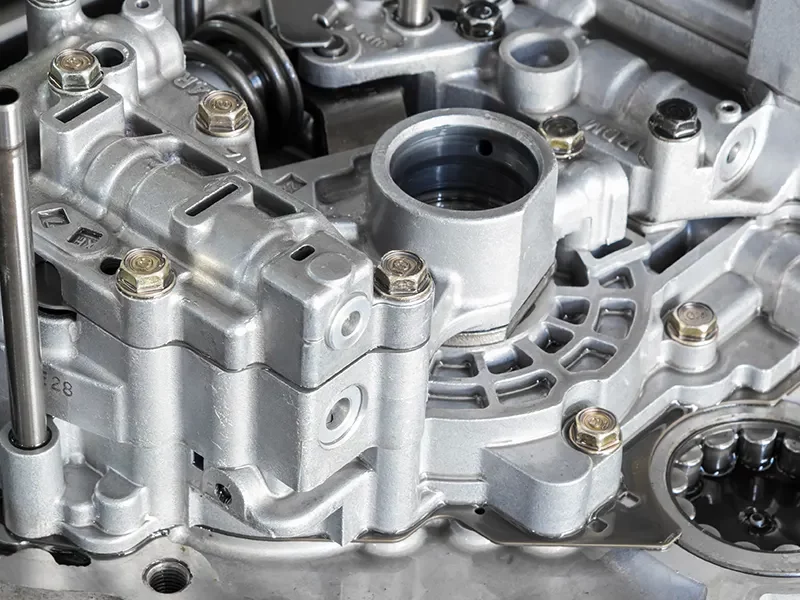
की तुलना 6061, 7075, 2024, 6063, और 5052
प्रत्येक एल्यूमीनियम मिश्र धातु अद्वितीय गुण और लाभ प्रदान करता है. जबकि 7075 एल्यूमीनियम उच्चतम उपज ताकत का दावा करता है, 6061 एल्यूमीनियम ताकत के उत्कृष्ट संयोजन के लिए बेशकीमती है, जुड़ने की योग्यता, और संक्षारण प्रतिरोध. 2024 एल्यूमीनियम अपनी उच्च शक्ति और थकान प्रतिरोध के लिए प्रसिद्ध है, यह एयरोस्पेस अनुप्रयोगों के लिए उपयुक्त है. वहीं दूसरी ओर, 6063 और 5052 एल्यूमीनियम को उनकी असाधारण रूप से पसंद करने के लिए पसंद किया जाता है, संक्षारण प्रतिरोध, और वास्तु और समुद्री अनुप्रयोगों में बहुमुखी प्रतिभा.
एल्यूमीनियम मिश्र में उपज की ताकत को प्रभावित करने वाले कारक
कई कारक एल्यूमीनियम मिश्र धातुओं की उपज ताकत को प्रभावित करते हैं, मिश्र धातु रचना सहित, गर्मी उपचार प्रक्रियाएँ, और सख्त काम करते हैं. मिश्र धातु रचना एल्यूमीनियम मिश्र धातुओं के यांत्रिक गुणों को निर्धारित करने में एक महत्वपूर्ण भूमिका निभाती है, जबकि गर्मी उपचार प्रक्रियाएं जैसे कि शमन और उम्र बढ़ने से उनकी ताकत और स्थायित्व बढ़ सकता है. सख्त काम करना, प्लास्टिक विरूपण के परिणामस्वरूप, आगे एल्यूमीनियम मिश्र धातुओं की उपज की ताकत बढ़ जाती है.
एल्यूमीनियम मिश्र धातुओं की उपज ताकत का परीक्षण
मानक परीक्षण विधियाँ
एल्यूमीनियम मिश्र धातुओं की उपज ताकत आमतौर पर तनाव परीक्षण या संपीड़न परीक्षण जैसे मानकीकृत परीक्षणों के माध्यम से निर्धारित की जाती है. इन परीक्षणों में सामग्री में नियंत्रित भार को लागू करना शामिल है जब तक कि यह प्लास्टिक विरूपण से गुजरता है, इंजीनियरों को इसकी उपज ताकत का सही आकलन करने की अनुमति देता है.
प्रयोगशाला परीक्षण बनाम. क्षेत्र परीक्षण
जबकि प्रयोगशाला परीक्षण नियंत्रित परिस्थितियों में सटीक माप प्रदान करता है, फील्ड परीक्षण वास्तविक अनुप्रयोगों में एल्यूमीनियम मिश्र धातुओं के प्रदर्शन में वास्तविक दुनिया की अंतर्दृष्टि प्रदान करता है. दोनों तरीके एल्यूमीनियम मिश्र धातुओं की उपज शक्ति और यांत्रिक गुणों का मूल्यांकन करने में मूल्यवान हैं, विशिष्ट इंजीनियरिंग आवश्यकताओं के लिए उनकी उपयुक्तता सुनिश्चित करना.
निष्कर्ष
निष्कर्ष के तौर पर, एल्यूमीनियम मिश्र धातुओं के मूल्यांकन में उपज शक्ति एक महत्वपूर्ण पैरामीटर है, विभिन्न इंजीनियरिंग अनुप्रयोगों में उनकी संरचनात्मक अखंडता और प्रदर्शन का निर्धारण करना. उच्च शक्ति से 7075 बहुमुखी से एल्यूमीनियम 6061 मिश्र धातु, प्रत्येक एल्यूमीनियम मिश्र धातु अद्वितीय गुण और लाभ प्रदान करता है. जैसा कि मिश्र धातु रचना में प्रगति जारी है, गर्मी उपचार प्रौद्योगिकियां, और परीक्षण के तरीके, इंजीनियरिंग में एल्यूमीनियम मिश्र धातुओं का भविष्य आशाजनक लगता है, अनुप्रयोगों की एक विस्तृत श्रृंखला के लिए अभिनव समाधान प्रदान करना.
पूछे जाने वाले प्रश्न
1. उपज शक्ति और तन्यता ताकत के बीच अंतर क्या है?
उपज की ताकत अधिकतम तनाव है जो एक सामग्री स्थायी विरूपण से गुजरने के बिना सामना कर सकती है, जबकि तन्यता ताकत अधिकतम तनाव है जो तनाव के तहत फ्रैक्चर करने से पहले झेल सकता है. उपज शक्ति उस बिंदु को इंगित करती है जिस पर एक सामग्री प्लास्टिक रूप से विकृत होने लगती है, जबकि तन्यता ताकत तनाव के तहत अपनी अंतिम ताकत का प्रतिनिधित्व करती है.
2. गर्मी उपचार उपज की ताकत को कैसे प्रभावित करता है?
शमन और उम्र बढ़ने जैसी गर्मी उपचार प्रक्रियाएं एल्यूमीनियम मिश्र धातुओं की उपज ताकत को काफी प्रभावित कर सकती हैं. शमन में अपनी ताकत बढ़ाने के लिए सामग्री का तेजी से ठंडा करना शामिल है, जबकि उम्र बढ़ने या वर्षा सख्त अपने यांत्रिक गुणों को बढ़ाती है, उपज की ताकत सहित.
3. क्या उच्च-तनाव अनुप्रयोगों में एल्यूमीनियम मिश्र धातुओं का उपयोग किया जा सकता है?
हाँ, कुछ एल्यूमीनियम मिश्र जैसे जैसे 7075 और 2024 विशेष रूप से उच्च-तनाव अनुप्रयोगों के लिए डिज़ाइन किए गए हैं, एयरोस्पेस सहित, सैन्य, और संरचनात्मक अभियांत्रिकी. ये मिश्र असाधारण शक्ति-से-वजन अनुपात प्रदान करते हैं, उन्हें अनुप्रयोगों की मांग के लिए उपयुक्त बनाना जहां ताकत और स्थायित्व सर्वोपरि है.
4. एल्यूमीनियम मिश्र धातुओं का उपयोग करने के पर्यावरणीय लाभ क्या हैं?
एल्यूमीनियम मिश्र धातु अत्यधिक टिकाऊ और पर्यावरण के अनुकूल सामग्री हैं. वे हल्के हैं, पुनर्चक्रण, और ऊर्जा-कुशल, अन्य धातुओं की तुलना में कम कार्बन उत्सर्जन और पर्यावरणीय प्रभाव में योगदान. पुनर्चक्रण एल्यूमीनियम को प्राथमिक उत्पादन की तुलना में काफी कम ऊर्जा और संसाधनों की आवश्यकता होती है, इसे स्थायी इंजीनियरिंग समाधान के लिए एक पसंदीदा विकल्प बनाना.
5. मैं एक अज्ञात एल्यूमीनियम मिश्र धातु की उपज ताकत कैसे निर्धारित कर सकता हूं?
एक अज्ञात एल्यूमीनियम मिश्र धातु की उपज ताकत को मानकीकृत परीक्षण विधियों जैसे तनाव परीक्षण या संपीड़न परीक्षण के माध्यम से निर्धारित किया जा सकता है. सामग्री को नियंत्रित भार के अधीन करके और इसके विरूपण व्यवहार का विश्लेषण करके, इंजीनियर इसकी उपज शक्ति और यांत्रिक गुणों का सही आकलन कर सकते हैं. वैकल्पिक, सामग्री विशेषज्ञों के साथ परामर्श या प्रयोगशाला परीक्षण का संचालन करना अज्ञात एल्यूमीनियम मिश्र धातुओं की उपज ताकत में मूल्यवान अंतर्दृष्टि प्रदान कर सकता है.


